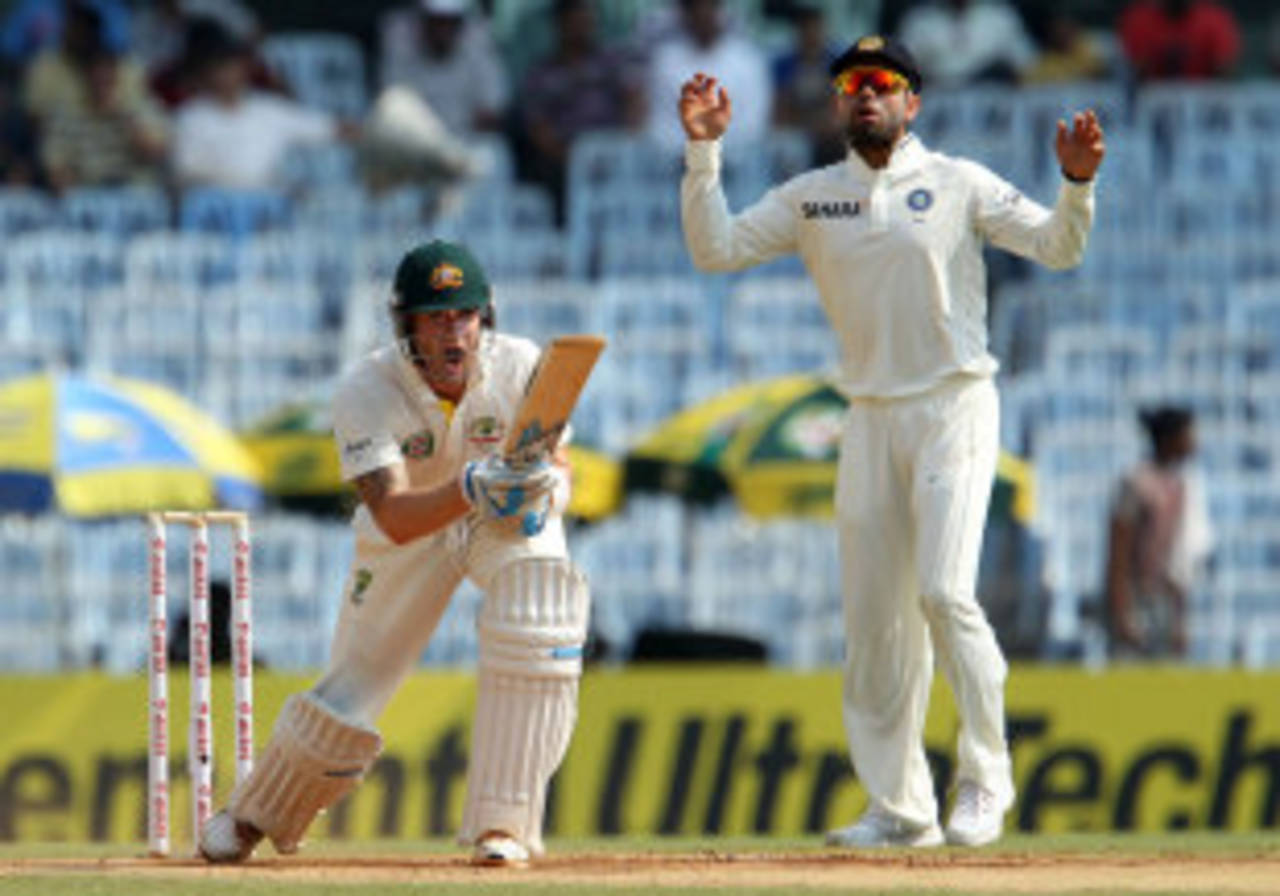Cricket administrators obviously don't mind embarrassing themselves. How else do you explain two Test matches running concurrently being played under different sets of laws? South Africa and Pakistan are trying to win the same world championship title as India and Australia, but one series is using the DRS and the other isn't. How do you justify that and retain credibility?
There'll be plenty of people eager to wag their finger at the BCCI and say: "Be careful what you wish for." After all, it was their refusal to use the DRS that cost the team dearly
in the first innings, when Michael Clarke was erroneously adjudged not out on 39, and he went on to amass a century.
I'm no great fan of the DRS for a number of reasons but isn't the Clarke case what the ICC told us it was there to eradicate - the howler? The Clarke non-decision was a howler if ever I've seen one. A workable DRS would have achieved another stated aim of the ICC in implementing the technology - to get the right decision.
The big problem with the DRS is an unstated desire to get the right decision all the time. Cricket isn't that sort of game; there will always be 50-50 decisions as long as there's an lbw law, and that's part of the charm of the sport.
Stop aiming to produce a 100% record and concentrate on getting rid of the howler and then the DRS will be a useful tool in the game. This can only happen when the players have no part in the DRS and it's left in the hands of the third umpire to overrule on-field decisions that are palpably wrong.
It's easy to blame the BCCI entirely for the current mess but that's letting the other ICC Test nations off the hook. They are equally to blame for not standing up to the BCCI and presenting a case for all sitting down around the table and reaching a common-sense agreement, instead of the current situation, which is an embarrassment to the game.
Clarke is a good enough batsman - as he showed in the first innings - to capitalise on an umpiring error. The concern for India is, he's also an aggressive captain who can take advantage of any opposition weakness, just as he did in completing a whitewash win over MS Dhoni's hapless charges in Australia.
Indian selectors tend to be ultra-sentimental, and on the evidence of Harbhajan Singh's lacklustre performance, it was the lure of his 100th Test match that earned him a place in the side. And the sight of Ishant Sharma's inconsistent bowling rarely troubling batsmen only served to confirm what a wise decision it was to produce a pitch to help the spinners. If the Indian selectors maintain that form throughout the series, they'll more than likely play into Clarke's hands.
While Australia's ploy of playing a strong pace attack was based on a genuine belief they are their best bowlers and therefore present the most likely chance of victory, India look to have over-theorised. Relying heavily on offspin because there is a preponderance of left-handers in the opposition line-up is fine as long as they all bowl like the much-improved R Ashwin. Surely Pragyan Ohja is one of India's three best tweakers? Not playing him seemed to be a mistake. Anyway, isn't the left-armer spinning into the left-hander out of the rough? And doesn't that increase the likelihood of bowled and lbw dismissals, one of which doesn't require the umpire's intervention?
Clarke has established a solid base camp for Australia - they desperately needed a good first innings against the Indian spinners - thanks to two bits of good fortune, winning the toss and getting a favourable decision. Let's hope that if he does conjure up a victory it's because of shrewd captaincy rather than maladministration.
Former Australia captain Ian Chappell is now a cricket commentator for Channel 9, and a columnist
